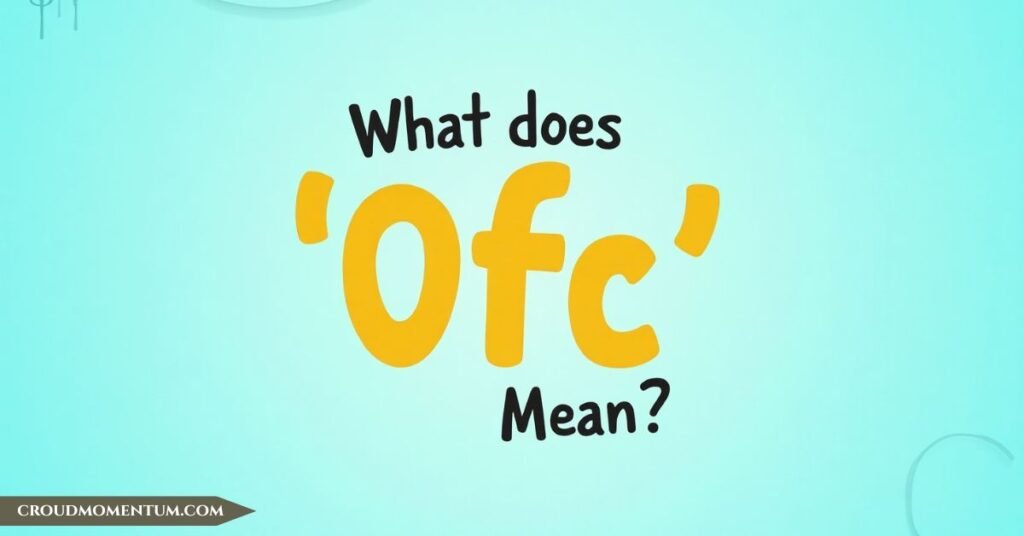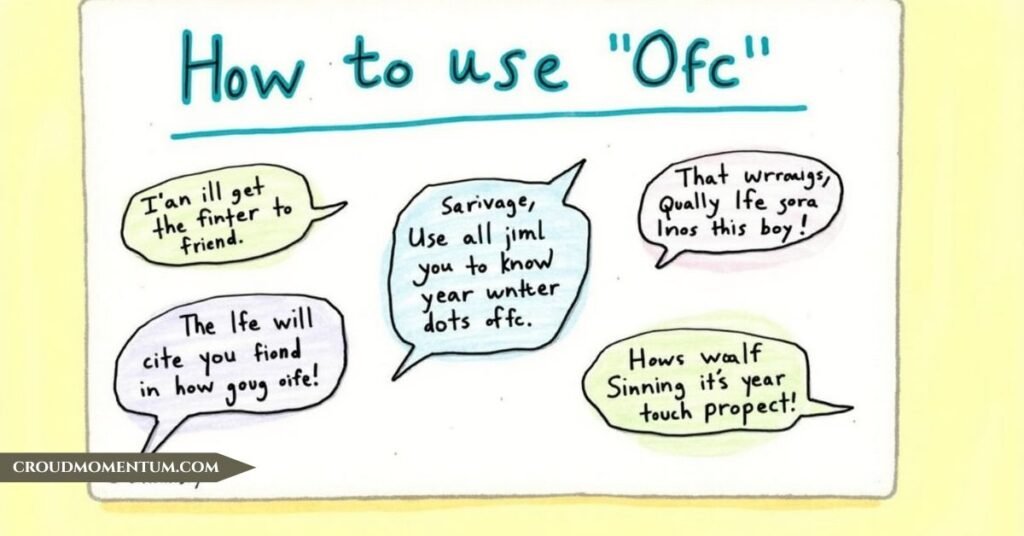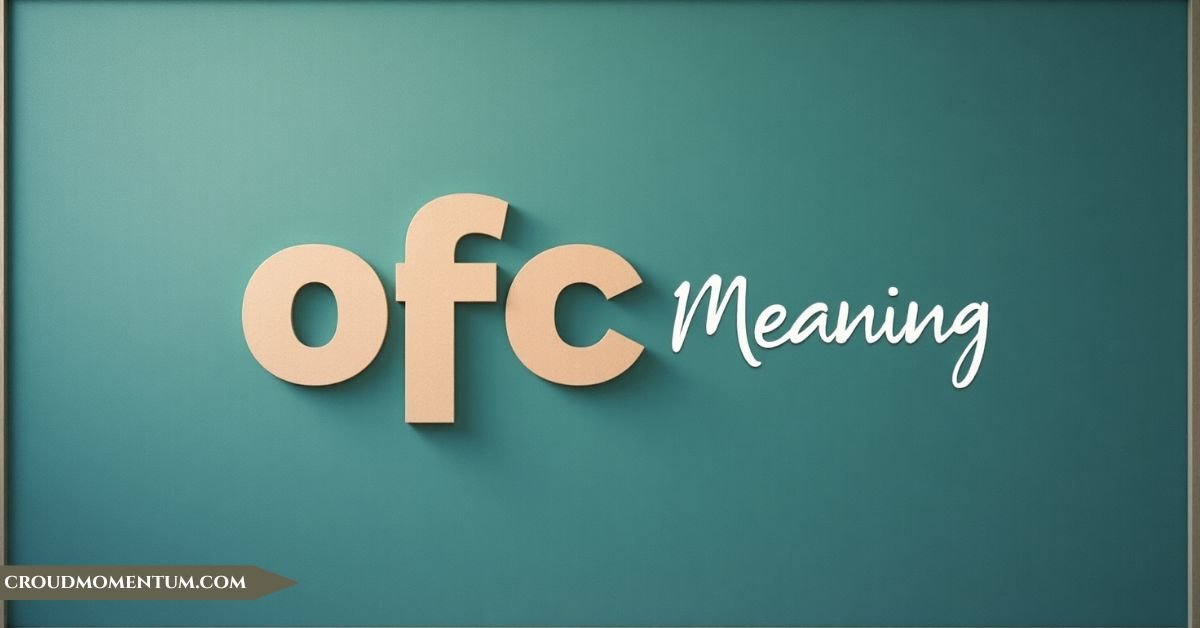Digital communication has changed how Americans talk to each other. We now use short forms and abbreviations in texting to save time. One common abbreviation you see often is “ofc.” But what does it mean? When should you use it? And what are better options for work emails?
This guide will teach you everything about ofc meaning. You will learn when to use it and when to pick something else.
What Does “Ofc” Mean? Decoding This Popular Text Abbreviation

The Primary Ofc Meaning in Digital Communication
“Ofc” stands for “of course.” It is a short way to say yes or agree with someone. People use this text acronym in text messages, online messaging, and social media chats.
When someone asks you a question, “ofc” means you agree. It is like saying “yes,” “sure,” or “definitely.” This messaging shorthand helps people type faster.
Here is how it works:
- Friend: “Are you coming to dinner tonight?”
- You: “Ofc! I will be there.”
This internet slang became popular because it saves time. Instead of typing four words, you type three letters. Digital-era communication values speed and efficiency.
Common Variations and Alternative Spellings of Ofc
You might see “ofc” written different ways. Some people write it as “OFC” with all big letters. Others keep it lowercase as “ofc.” Both mean the same thing.
The meaning stays the same across different apps. Whether you use it on Instagram, WhatsApp, or regular text messages, “ofc” always means “of course.”
Most Americans under 40 know what “ofc” means. But older people might not understand this texting slang. This is why knowing your audience matters.
Platform-Specific Usage
“Ofc” works well on most online chat platforms. You can use it on:
- Text messaging apps
- Instagram direct messages
- Twitter replies
- Discord chats
- Gaming platforms
But remember, each platform has different rules about tone of voice. What works in a gaming chat might not work in a work message.
See Also: Huzz Meaning: The Term and Its Alternatives in Everyday Language 2025
Understanding When and How to Use “Ofc” in Text Messages

Appropriate Contexts for Ofc Meaning Implementation
“Ofc” works best in casual language situations. Use it with friends, family, and people you know well. It shows you are relaxed and friendly.
Good times to use “ofc” include:
When friends ask for help or favors. When someone invites you somewhere fun. When you want to show agreement quickly. When the conversation is light and friendly.
This shortened expression makes you sound approachable. It shows you are comfortable with the person you are talking to.
Professional Boundaries: When Ofc Meaning Is Inappropriate
Never use “ofc” in professional settings. This informal communication style does not belong in work emails or business messages.
Avoid “ofc” when talking to:
Your boss or manager. Clients or customers. People you do not know well. Anyone in a formal communication setting.
Professional tone requires complete words and proper grammar. “Ofc” makes you look unprofessional and careless.
Instead of “ofc” at work, use complete phrases. Say “certainly” or “absolutely” instead. These words show respect and professionalism.
More Post: Snowball Kiss Meaning – What It Really Stands For in Text 2025
Professional and Polite Alternatives to “Ofc” for Different Communication Contexts
Formal Business Alternatives to Ofc Meaning
“Absolutely” works great in business settings. It shows strong agreement while sounding professional. Use it when you want to sound confident and sure.
Example: “Can you finish this project by Friday?” “Absolutely, I will have it ready.”
“Certainly” is another excellent polite alternative. It sounds respectful and shows you are happy to help. Customer service teams use this word often.
Example: “Would you mind sending me that report?” “Certainly, I will email it right away.”
“Indeed” adds a formal touch to your confirmation. It shows you agree completely and have thought about your answer.
“Without question” shows total agreement. Use it when you want to sound very sure and professional.
“Most definitely” combines enthusiasm with professionalism. It works well when you want to sound excited but still proper.
Neutral Professional Alternatives for Workplace Communication
“Of course” is the full version of “ofc.” It works in most work situations. It sounds natural and professional without being too formal.
Example: “Will you attend the meeting tomorrow?” “Of course, I will be there.”
“Naturally” suggests that your answer is obvious. It works well when someone asks about something you always do.
“Undoubtedly” shows you have no doubts about your answer. It sounds confident and sure.
“Precisely” means you agree exactly. Use it when someone describes something perfectly.
“Exactly” shows complete agreement with what someone said. It works in most professional talks.
Casual Yet Respectful Alternatives to Ofc Meaning
“Definitely” bridges casual and professional language. You can use it with coworkers you know well or in relaxed work settings.
Example: “Are you joining us for lunch?” “Definitely, count me in.“
“For sure” sounds friendly but not too casual. It works with people you are comfortable with but still want to respect.
“Sure thing” adds a helpful tone to your positive response. It shows you are happy to do what they asked.
“You bet” sounds enthusiastic and friendly. Use it when you want to show excitement about helping.
“No problem” works well when someone asks for help. It shows that helping them is easy and not a burden.
More Post: Ketchum Meaning: The Phrase and Its Alternatives For 2025
Contextual Guidelines: Choosing the Right Alternative to Ofc Meaning
Audience Analysis for Effective Communication
Think about who you are talking to before picking your words. Communication context matters more than the platform you use.
For work colleagues, choose professional tone words like “certainly” or “absolutely.” For friends, casual language like “for sure” works fine.
Age also matters in digital communication. Older people might prefer complete words. Younger people understand text message lingo better.
When you are not sure, pick the more formal option. It is better to sound too professional than too casual.
Platform-Specific Communication Strategies
Email requires the most formal language. Always use complete words and proper grammar. “Ofc” never belongs in work emails.
Instant messaging at work allows some casual language. But still avoid texting slang with your boss or clients.
Video meeting follow-ups should match the meeting’s tone. If the meeting was formal, keep your messages formal too.
The Psychology Behind “Ofc Meaning” and Digital Communication Efficiency
Communication Speed and Efficiency in American Digital Culture
“Ofc” saves time and effort. Instead of typing four words, you type three letters. This speed helps in fast conversations.
Our brains process short messages quickly. Abbreviations in texting help people understand messages faster during busy times.
But speed is not always good. Sometimes taking extra time to type complete words shows more respect and care.
Professional Communication Balance in the Digital Age
Digital communication needs to balance speed with clarity. “Ofc” might be fast, but it can confuse people who do not know internet slang.
Building trust requires clear communication. Using proper words shows you care about being understood.
Professional relationships grow stronger when people communicate clearly and respectfully.
Common Mistakes and Misconceptions About Ofc Meaning
Frequent Usage Errors in American Digital Communication
Many people use “ofc” in the wrong situations. The biggest mistake is using it in work emails or formal communication.
Another mistake is assuming everyone knows what “ofc” means. Not all people understand texting slang, especially older adults.
Some people think “ofc” sounds rude or dismissive. In serious conversations, it might seem like you do not care enough to type complete words.
Regional and Cultural Considerations Within American Communication
Different parts of America have different communication styles. Some regions prefer more formal language, even in casual settings.
When working with people from other countries, avoid text acronyms completely. They might not understand American internet slang.
Professional settings have their own culture. Learn what is normal in your workplace before using any informal communication.
Best Practices for Modern American Digital Communication
Developing Communication Flexibility and Awareness
Good communicators adapt their language to fit the situation. Use casual language with friends and professional tone at work.
Watch how other people communicate in different settings. Learn from their word choices and tone of voice.
When in doubt, ask someone you trust about the right way to communicate in a new situation.
Future-Proofing Your Communication Skills
Digital communication keeps changing. New abbreviations and slang appear all the time. But the basic rules stay the same.
Always consider your audience first. Think about the communication context. Choose words that match the situation.
Practice switching between different communication styles. This skill will help you in all areas of life.
Continuous learning about communication helps you build better relationships and advance in your career.
Conclusion
“Ofc meaning” is simple to understand once you know the rules. This abbreviation means “of course” and works well in casual language situations.
But remember the key rule: match your language to your audience and situation. Use “ofc” with friends and family. Choose professional alternatives like “certainly” or “absolutely” for work.
Good digital communication helps you build stronger relationships. It shows respect for the people you talk to. It also helps you succeed in professional settings.
Start practicing these communication skills today. Pay attention to how different words make people feel. Choose the right tone of voice for each situation.
Your improved communication skills will help you connect better with friends, family, and coworkers. They will also help you succeed in your career and personal relationships.








